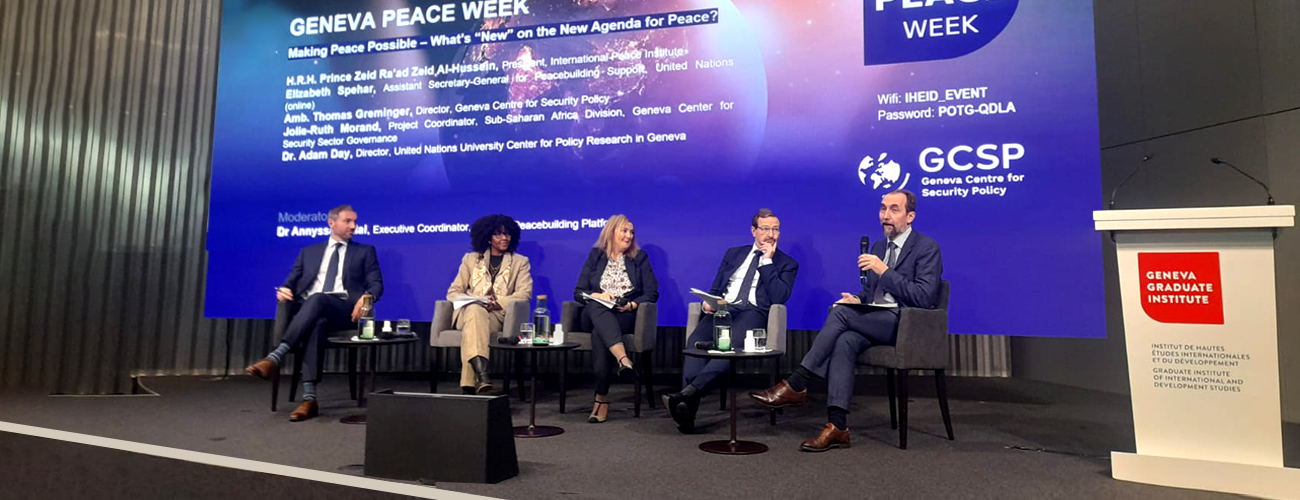A delegation of IPI staff traveled to Geneva to contribute to the Geneva Peace Week, which focused on the overarching theme of “Peace is Possible.”
On Monday, October 31, 2022, IPI President Zeid Ra’ad Al Hussein participated in the high-level panel on “What’s ‘New’ on the New Agenda for Peace?” alongside the Assistant Secretary-General for Peacebuilding Support Elizabeth Spehar; the Director of the Geneva Centre for Security Policy (GCSP), Ambassador Thomas Greminger; Jodie-Ruth Morand from the Sub-Saharan Africa Division of the Geneva Centre for Security Sector Governance (DCAF); and Adam Day, Director of the United Nations University Centre for Policy Research (UNU-CPR) in Geneva. During the panel, IPI’s president called for the UN Secretariat to continuously act with moral consistency, reignite its commitments to the UN Charter, and make peacemaking a cornerstone of the New Agenda for Peace.
On Tuesday, November 1, 2022, IPI, GCSP, and the Geneva Peacebuilding Platform (GPP) organized an in-person, expert-level roundtable on the margins of the 2022 Geneva Peace Week. The event focused on “Health Emergencies and the Humanitarian Sector: Lessons for Sustaining Peace in a Pandemic.” Participants included representatives from the World Health Organization (WHO), other UN entities, humanitarian organizations, and civil society organizations. Participants were asked to share some lessons learned and good practices on the role of humanitarian and health actors in sustaining peace in health emergency contexts. The discussion was moderated by Adam Lupel, Vice President and COO of IPI.
Participants representing the health, humanitarian, and peacebuilding sectors discussed lessons from pandemic responses, including the 2018–2020 Ebola crisis in the Democratic Republic of the Congo (DRC), and began developing a common understanding of how health and humanitarian providers can contribute to peace while adhering to humanitarian principles.
WHO is the directing and coordinating authority on international health matters. This includes health crises in fragile and conflict-affected contexts. To better develop a conflict-sensitive approach, WHO launched its “Global Health for Peace Initiative” in 2019 to deliver healthcare while contributing to sustaining peace. Following a decision by the WHO Executive Board, the 75th World Health Assembly requested that the director-general consult with member states and observers on a roadmap for the implementation of the Global Health for Peace Initiative to be put forward for consideration at the World Health Assembly in 2023. This discussion and its resulting issue brief serve as an informal contribution to this process.








